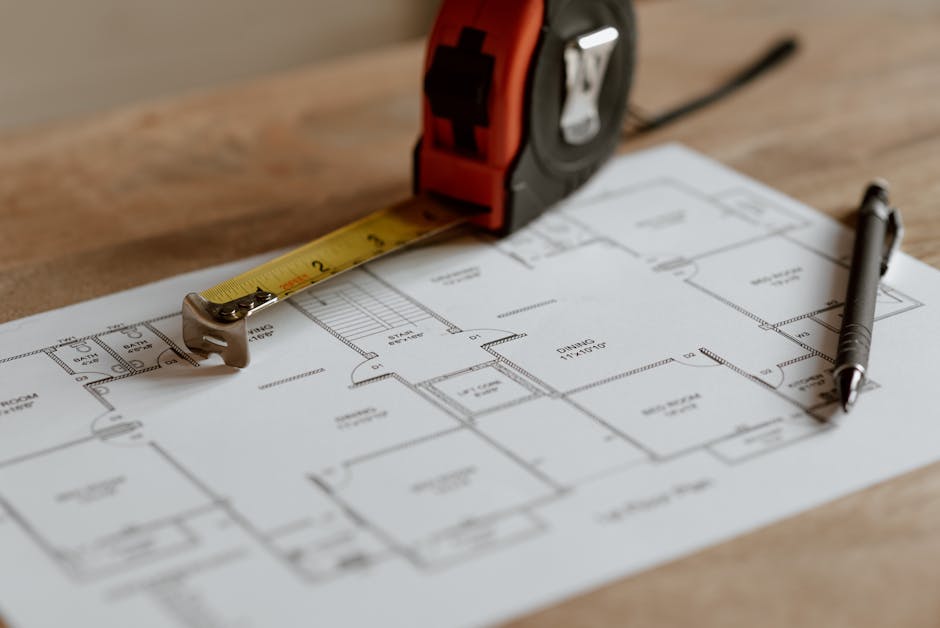The Importance of Leak Repair in Home Maintenance
Leaks might not seem like a big deal at first glance, but they can turn into a homeowner’s worst nightmare if ignored. Water damage from leaks can ruin floors, walls, and even the foundation of your home. Plus, the moisture creates a perfect environment for mold and mildew to grow, which can be harmful to your health. Fixing leaks quickly saves you money on water bills too. A dripping faucet or a running toilet can waste gallons of water a day, adding a significant amount to your monthly expenses. Think of leak repair not as a chore, but as a smart way to protect your home and wallet. Getting ahead of leaks keeps your home safe, comfortable, and dry.
Recognizing the Signs of Leaks in Your Home
Spotting a leak early can save your wallet and your home from a disaster. Here’s how to tell if you’ve got a leak. First, keep an ear out for any dripping sounds when the house is quiet. This could be your first clue. Next, check for damp spots on walls, ceilings, and floors; these can often go unnoticed but are telltale signs of a hidden leak. Also, a sudden spike in your water bill without increased usage is a dead giveaway. Don’t forget to inspect under sinks and around toilets and appliances for any signs of moisture or unusual smells. Mold or mildew buildup, especially in places that should be dry, is not just a health risk—it’s a sign that water is where it shouldn’t be. Lastly, if you notice water stains or discoloration on surfaces, it’s time to investigate. Catching these signs early can be the difference between a simple fix and a financial nightmare.
The Consequences of Ignoring Leak Repairs
Ignoring leak repairs in your home is like ignoring a ticking time bomb. It may not seem like a big deal at first, but the consequences can be severe and costly. When you let a leak go unfixed, you’re not just dealing with water dribbling from a pipe. You’re opening the door to mold growth, which can be harmful to your health. Mold thrives in damp conditions, and once it gets a foothold, it’s difficult and expensive to remove. Besides health risks, water damage can ruin your floors, walls, and furniture. Over time, a small leak can lead to structural damage as water seeps into the foundation of your home, weakening it. This kind of damage is not only a hassle to fix but can significantly decrease your home’s value. Utility bills are another hidden cost of ignoring leaks. A dripping faucet might seem insignificant, but it can waste gallons of water, hiking up your water bill. In essence, fixing leaks promptly saves money, preserves your home’s integrity, and protects your health. So, don’t wait—make leak repair a top priority in your home maintenance list.
How Leak Repair Prevents Further Damage to Your Home
Ignoring a leak is like waiting for a small spark to start a wildfire in your home. The truth is, water damage from leaks can turn from a minor issue into a major headache if not tackled promptly. Here’s why fixing leaks should jump to the top of your home maintenance list. First off, water from leaks can spread fast, seeping into floors, walls, and ceilings. This can weaken the structure of your home, leading to costly repairs down the line. Then, there’s the issue of mold and mildew. These unwelcome guests thrive in damp conditions, posing health risks and further damaging your property. By addressing leaks early, you block mold and mildew from taking hold. Also, lingering moisture can attract pests like termites and carpenter ants, notorious for munching away at your home’s woodwork. By sorting out leaks quickly, you’re also keeping these critters at bay. Last but not least, unchecked leaks can lead to higher utility bills. Wasted water costs you more, and the added moisture can make your heating or cooling system work harder, driving up energy costs. So, when you spot a leak, don’t sit on it. Acting fast can save your home from extensive damage, keep health hazards away, prevent pest infestations, and avoid unnecessary hikes in utility bills. In short, fixing leaks isn’t just about water; it’s about protecting your home and wallet.
The Impact of Leaks on Your Health and Safety
Leaks in your home are not just a minor inconvenience. They can lead to serious health and safety issues if ignored. Moisture from leaks creates the perfect environment for mold and mildew to grow. Breathing in mold spores can cause allergic reactions, asthma attacks, and other respiratory problems, especially in children and the elderly. Moreover, water leaks can damage the structural integrity of your home. Over time, water seeping into foundations, walls, and ceilings weakens the structure, making it unsafe. Electrical systems are also at risk. Water and electricity are a dangerous mix, increasing the risk of fires and electric shocks. Don’t overlook leaks, thinking they’re too small to cause trouble. Acting fast can save your health and keep your home safe.
Calculating the Cost-Benefit of Timely Leak Repairs
Ignoring a leak is like letting money drip away. Here’s the deal: catching and fixing leaks early can save you heaps of cash. Let’s crunch some numbers. Say a small leak adds about (20 to your monthly water bill. That’s )240 a year for doing nothing. Now, fixing it might cost you around (150 to )350, depending on the leak’s severity. Do the math, and you’ll see fixing it asap makes sense. If you let it slide, that leak can cause damage, leading to repairs that could skyrocket to thousands. Mold removal alone can run you up to $2,000. We’re not even talking about structural repairs. Getting ahead of leaks means saving big bucks in the long run. Fix leaks early. Your wallet will thank you.
Step-by-Step Guide to Basic Leak Repair
First, find the leak. Sounds obvious, right? But it’s not always gushing water that points to a problem. Sometimes, it’s a suspiciously high water bill or that moldy smell in the basement. Once you’ve spotted the issue, shut off the water supply to that area. It’s like planning a battle strategy; you wouldn’t go in without cutting off the enemy’s supply lines.
Next, assess the damage. Is it a simple drip you can tackle with a wrench, or is it time to call in the cavalry? For small leaks in pipes or faucets, you might just need to replace a washer or tighten a connection. Remember, righty-tighty, lefty-loosey.
If it’s a bigger problem, like a burst pipe, grab some plumber’s tape or epoxy putty. These are your first-aid kits for plumbing leaks. Wrap the tape or mold the putty around the damaged area to seal it up temporarily. Think of it as applying a bandage until professional help arrives.
Turn the water back on slowly and watch the repaired area like a hawk. No drips or leaks? Congratulations, you’ve won this battle. But keep an eye out; the war against home moisture isn’t over.
Remember, even a small leak can lead to big problems over time, like mold, rot, and sky-high water bills. Fixing leaks promptly saves money and keeps your home in fighting shape.
When to Call a Professional for Leak Repairs
Sometimes, you can tackle a leak with a quick fix, but other times, it’s best to call in the pros. Here’s when to dial up a professional: if the leak is in a place that’s hard to get to, like behind walls or under the foundation. If you see mold or rot, that’s another red flag. A big water bill without a clear reason should make you suspicious of hidden leaks. And, if after your best DIY efforts the leak persists, it’s time to bring in an expert. Leaks can cause major damage over time, so acting fast and getting a professional when needed can save you money and headaches down the line.
Preventive Measures to Avoid Future Leaks
To stop leaks before they start, smart home care is the way to go. It saves you from the headache of repairs later. Here’s how you can be proactive: First, regularly inspect your pipes and faucets. Look for signs of wear or damage. Catching a small issue early can prevent a major headache down the road. Next, keep your gutters clean. Blocked gutters can lead to water backups that damage your home’s foundation and roof. Also, know your water pressure. High pressure might feel great in the shower, but it can strain your pipes. Use a pressure regulator if needed. Don’t forget to insulate your pipes in cold weather to prevent freezing and bursting. Lastly, be careful what you flush. Stuff like wet wipes, even if they say flushable, can clog your system. Stick to these steps, and you’ll be way ahead in keeping your home leak-free.
Summary: Prioritizing Leak Repair for a Healthier Home
Ignoring a leak can seem like a small issue at first, but it’s a mistake that can lead to bigger problems down the road. Here’s the deal – leaks can cause mold, weaken your home’s structure, and hike up your water bill. Think about it. Mold can grow in just 24 to 48 hours under the right conditions, and it’s not just ugly; it can harm your health. Then, water seeping into places it shouldn’t can rot wood and rust metal, making parts of your home less stable and safe. And about the water bill? A single leak can waste gallons of water, meaning you’re paying for water you’re not even using. Fixing leaks fast keeps your home healthy, stops bigger repair bills later, and saves on that water bill. So, when you spot a leak, don’t wait. Make it top of your list to get it fixed.





